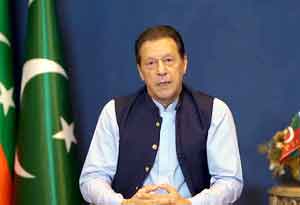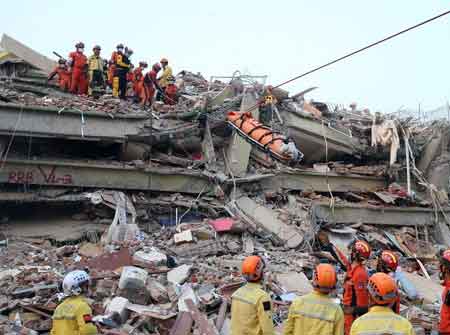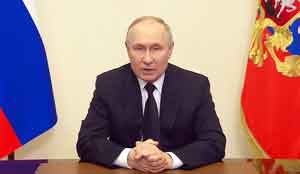With less than 50 days remaining until South Korea's parliamentary elections in April, concerns over the proliferation of artificial intelligence (AI)-generated deepfake videos and images are mounting, prompting heightened vigilance from election authorities.
According to the National Election Commission (NEC), the country's election watchdog, 129 pieces AI-generated media content had been detected from January 29 to the end of last week, constituting a violation of the newly revised election law.
This law prohibits the use of deepfakes for electoral campaigning purposes, with penalties of up to seven years in prison or fines of 10 million won ($7,500) for offenders, reports Yonhap news agency.
The NEC's crackdown on deepfakes represents a proactive response to the evolving landscape of disinformation, as facilitated by advancements in AI technology.
The revised legislation, passed by the National Assembly in December, aims to curb the spread of false information and safeguard the integrity of the electoral process against emerging threats.
Deepfake manipulations have already been used in past elections, both domestically and internationally, raising concerns those AI-created videos and images are one of the biggest threats to democracy, especially in the form of fake news and misleading public opinion.
For instance, during the provincial elections in 2022, an AI-generated video circulated on social media depicting President Yoon Suk Yeol endorsing a local candidate from the ruling party.
In January, New Hampshire voters received an AI-generated robocall impersonating U.S. President Joe Biden, advising them not to vote in the state's presidential primary election.
As AI technology continues to evolve and proliferate, experts warn of the growing sophistication and speed of deepfake production, outpacing traditional verification processes employed by election authorities. It is hard for the authorities to combat deepfake proliferation due to the unmatched speed of deepfake creation compared to verification efforts.
"The speed of production of believable fakes through deepfake technologies is much faster than that of the NEC's verification process," said Kim Myuhng-joo, a professor at Seoul Women's University. "It's unmatchable."
Furthermore, the continuous evolution of deepfake technology poses additional hurdles for detection and mitigation, calling for a multifaceted approach that prioritises rigorous verification protocols.

-generated_deepfake_videos_and_images.jpg)






‘Pahalgam incident deeply disturbing & tragic’: Former Pakistan PM Imran Khan
Former Pakistan Prime Minister Imran Khan on Tuesday termed the Pahalgam terror attack as disturbing & tragic and also condoled the victims and their families.
Congress finally deletes 'Gayab' post targeting PM Modi after outrage
Under fire from the BJP over its social media post targeting Prime Minister Narendra Modi, Congress finally, on Tuesday, took down the controversial post.
Guterres calls EAM Jaishankar, Pak PM Sharif; stresses pursuing justice in Pahalgam terror attack
Secretary-General Antonio Guterres stressed the importance of pursuing justice in the Pahalgam terrorist attack while speaking with External Affairs Minister (EAM) S Jaishankar and Pakistan’s Prime Minister Muhammad Shebaz Sharif, his Spokesperson Stephane Dujarric said on Tuesday.
Congress organises ‘Save Constitution’ rallies across NE states
The opposition Congress has been organising ‘Samvidhan Bachao’ (Save Constitution) campaign in the northeastern states. Claiming that the Constitution is in danger under the BJP-led Central government, the opposition Congress held a massive rally in Agartala on Tuesday.
RSS chief Bhagwat meets PM Modi after security huddle: Signs of a hard-hitting response in the works
In a significant political development, RSS chief Mohan Bhagwat met Prime Minister Narendra Modi at his official residence at 7, Lok Kalyan Marg on Tuesday evening.
What PM Modi's free hand to armed forces against terror means for cross-border action?
Prime Minister Narendra Modi’s unambiguous message during a high-level security meeting - ‘India is determined to deliver a crushing blow to terrorism’ - marks more than just a strong statement of resolve.
Justice BR Gavai appointed as next Chief Justice of India
Justice Gavai was elevated as a Judge of the Supreme Court on May 29, 2019. Appointed as Additional Judge of the Bombay High Court in November 2003, he became a permanent Judge in November 2005.
Three more Bangladeshi nationals held in Tripura
The Tripura Frontier of the Border Security Force (BSF) on Tuesday apprehended three Bangladeshi nationals, including a woman, for illegally entering India, officials said.